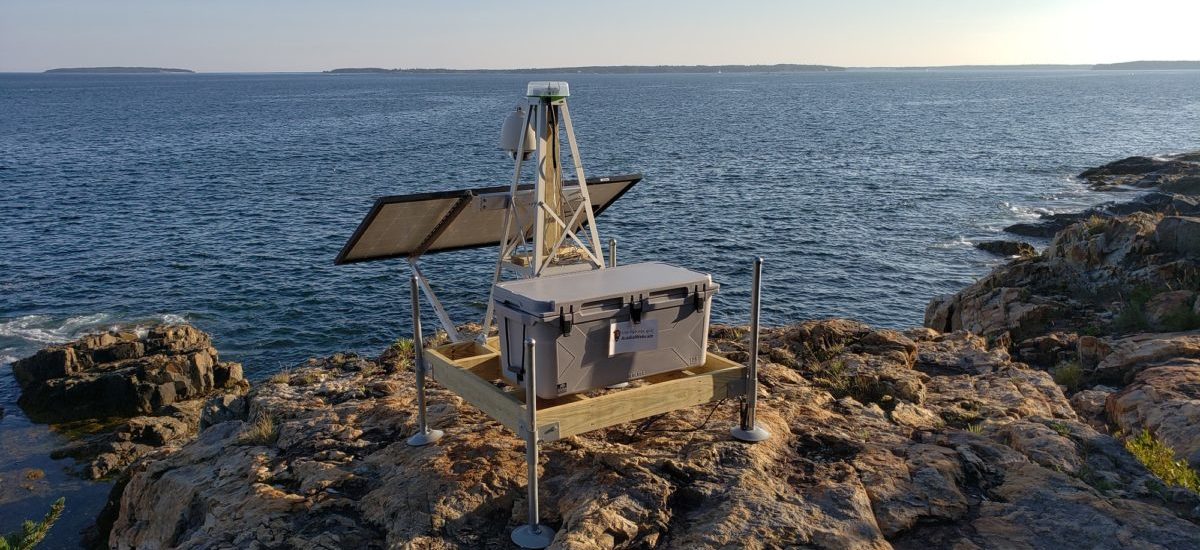For Journal 7, I am choosing Acadia National Park. I’ve only been to Acadia a dozen times, few when I was younger, and just recently a couple weekends ago in October. Although this is not my favorite National Park, it has a special place in my heart. This park is a means of escape. I find happiness in leaving all the commotion and business from my life behind as I explore the natural land and connect with nature without the distraction of current technologies. Even though I have only explored a small portion of the land, I value its natural beauties and breathtaking views. There is something special that comes from feeling the soil, trees, and water that can only be understood physically. Pictures do the place no justice, and I feel lucky to have it so close, practically in my backyard.
While keeping the land as natural as possible, two technologies that I would keep are the roadways, for public access, as well as its “Island Explorer”, the parks free public transportation bus. Roadways are beneficial because it offers public access to all. Driving around the park makes it easily accessible and manageable to see the majority of the park in just one day. The park has a roadway called “park loop” with encircles the park. Once the roadway is set, it cannot move or be replaced (for the most part). The initial laying of the roadway has an ecological effect on the environment, destroying some of the native lands. Although, once the asphalt is set, the damage is done and there is little ecological footprint to follow. Throughout the peak visiting times in the summer, there is little parking because there are too many cars on the roadways. One possible solution is the use of the Island Explorer. The goal of this bus is to limit the number of cars parked on the side of the road, impacting the ecological footprint. According to the Journal of Park and Recreation Administration, “No significant differences were detected between the mean number of vehicles counted as exceeding the capacity of the two parking lots and year… but the decline from a mean of 215 vehicles in 2001 to 180 vehicles in 2002 suggests a trend in the desired direction.” The Island Explorer is something I personally did not know about before doing the research, but the idea is there. One possible solution would be to advertise the bus more, make it better known and seem like a reliable option to the community. These technologies benefit the parks by making them more publically accessible with having little impact on its surrounding community.
When it comes to critiquing digital technologies in Acadia National Park, there are few to limit or feel the need to ban because there are only so many. However, one tech that caught my attention was the use of webcams. These remote webcams run off of solar power and cellular data. They are placed in remote areas along the coastline to offer images of sunrises, storms, sailboats, and so on. According to the National Park Service website, “during daylight hours, a static image refreshes about once each minute, and the camera orientation changes about once every two minutes… (the park) began the development of remote webcams in 2017 due to a lack of power and connectivity at its most scenic areas.” The use of a webcam seems unnecessary to me. I don’t see myself ever using this technology to view the ocean through my computer screen. With all the satellite technology in space, the use of a big, clunky, obnoxious webcam seems unattractive and useless to me. This does not mean I would ban the technology, but I would have the park reconsider the uses of its resources.
When it comes to this tech affecting local communities, the ones who actually feel the effects, I feel there should be a list of pros and cons as to who this would benefit and who it would negatively affect. A democratic way to do this would be to set up a vote to see who is on board and who is not. This could be achieved at the local town hall or incorporated in the next planned vote. At the end of the day, National Parks are not meant to create a profit, even the money you pay to enter the park is hardly enough to keep up with the required maintenance. This system is not out to get your money or steal your identity, which is why I like Acadia so much.
Sources:
“The Journal of Park and Recreation Administration”
https://js.sagamorepub.com/jpra/article/view/1453
Acadia National Park Service website:
https://www.nps.gov/acad/learn/photosmultimedia/webcams.htm
Information about the Island Explorer:
https://www.nps.gov/acad/planyourvisit/directions.htm

You must be logged in to post a comment.